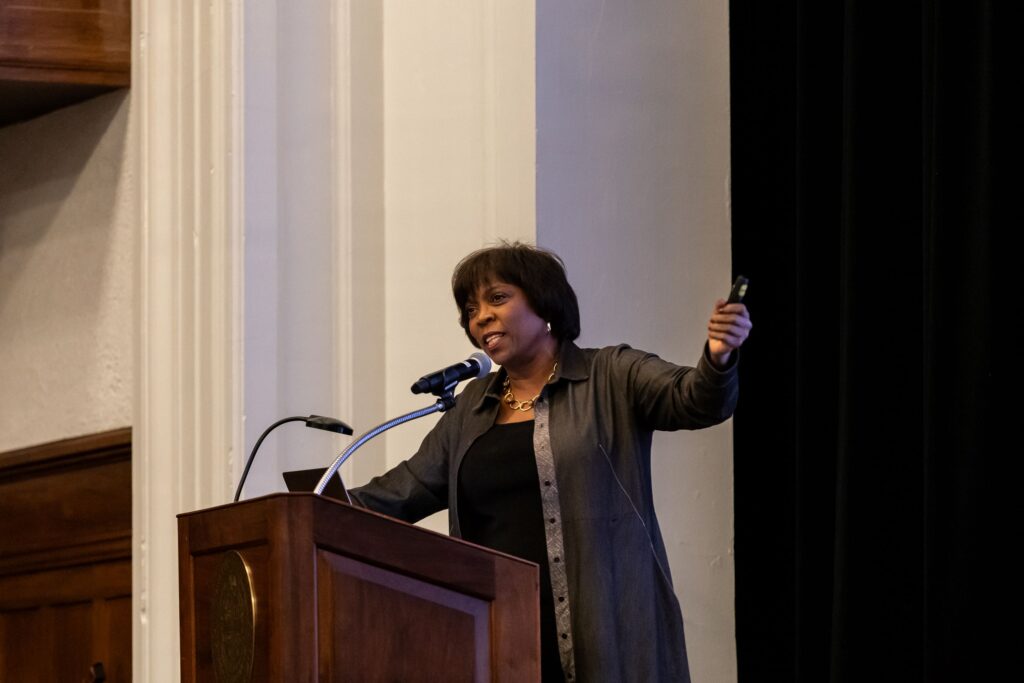Ertharin Cousin, former U.S. Ambassador to the UN Agencies for Food and Agriculture, gave an Endowed Lecture entitled “Hunger and Humanitarianism: My Journey to Create a Better World” on March 26 in Bridgewater College’s Cole Hall.
Cousin’s talk covered the former ambassador’s roots as the granddaughter of sharecroppers in rural Georgia through her time as executive director of the United Nations World Food Programme from 2012 to 2017.
“I was born into these issues,” Cousin said of her advocacy work to end hunger around the world. In her talk, Cousin credited her parents—social worker Anna Cousin and restauranteur/activist Julius Cousin—with supporting her early activism.
“They believed in change,” she said of her parents. “They told me to care about something and then do something about it.”
Cousin began her political career in her hometown of Chicago not long after graduating from the University of Georgia Law School. She also worked in public affairs for the grocery chain Albertson Foods. In 2004 she became executive vice president and chief operating officer of the largest domestic hunger relief organization in the United States, America’s Second Harvest (now Feeding America). In this role she mobilized the organization’s fundraising and volunteer efforts in response to Hurricane Katrina in 2005.
In the early 2000s, Cousin said that no one in the media or in public affairs talked much about the issue of hunger. It was at that time, she said, “My passion and purpose became hunger relief.”
As ambassador and executive director of the World Food Programme, Cousin said she worked hard to convey the importance of both humanitarian and development work abroad. Humanitarian work, she explained, involves feeding people and is a short-term solution to problems of hunger and food insecurity. To make real change in people’s lives, Cousin said, organizations and governments need to also carry out development work, including helping people find better ways to grow and distribute food locally. Cousin also said solutions need to be found to what she described as the “primary drivers of hunger: conflict and climate change.”
Although much of her talk focused on challenges she faced while working in the international arena, Cousin also emphasized that hunger is also a wide-ranging problem in the United States. In addition to the 44 million Americans suffering from food insecurity, there are millions more who are impacted by the rising cost of food which can lead to diet-related illnesses and malnutrition. Cousin called for more research and policies at the federal, state and local levels to increase investment in food and food production.
Cousin ended her hour-long talk with a call to action in the form of a poem she wrote. Speaking directly to the BC students in the audience she said, “The torch is in your hands/Not just to learn, but to take a stand… So rise young leaders, young scholars/Make it right.”
This final Endowed Lecture of this academic year was sponsored by the Anna B. Mow Symposium on Comparative Religious Ethics and the Harry W. and Ina Mason Shank Peace Studies Endowment. A schedule of Endowed Lectures for the 2025-26 academic year will be available in the late summer.
– Heather S. Cole
4/7/25


